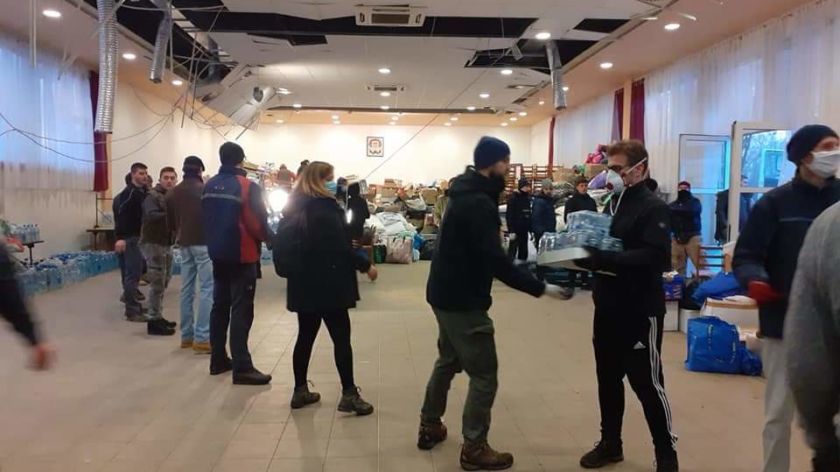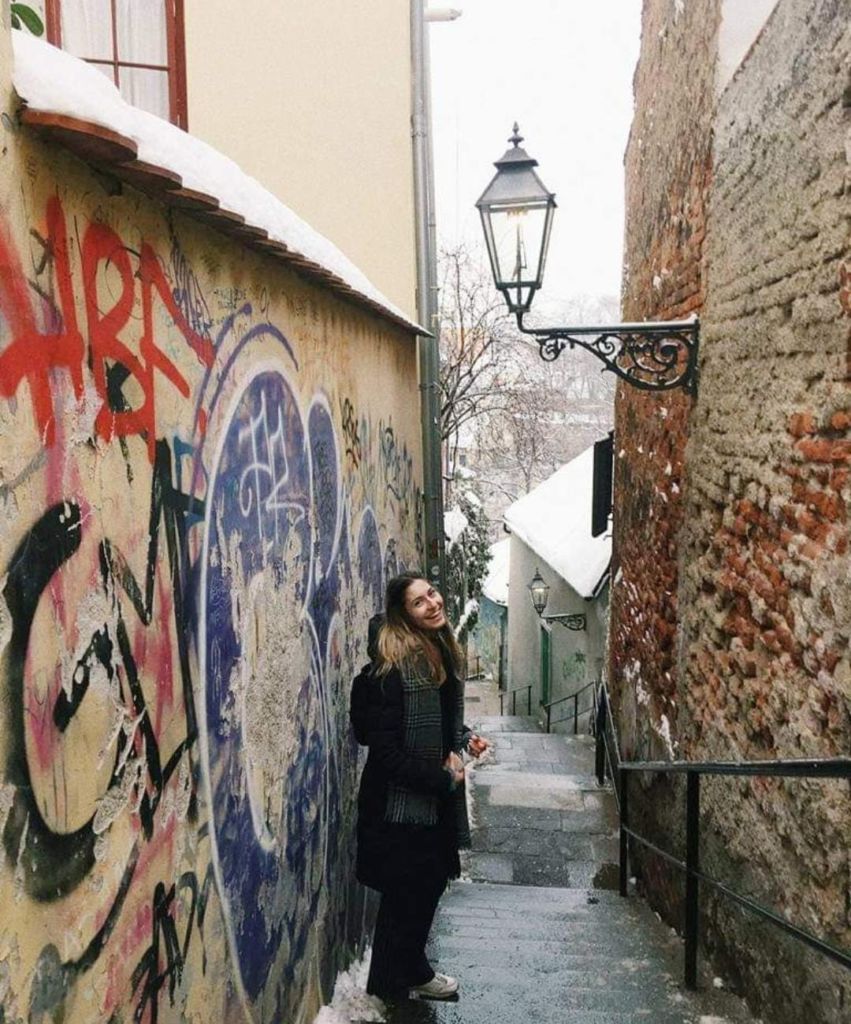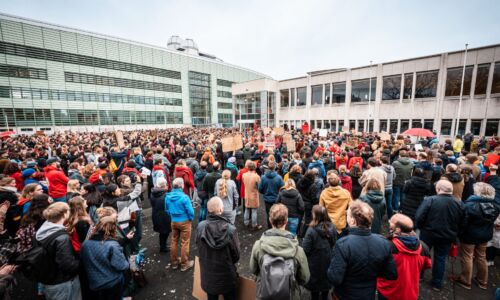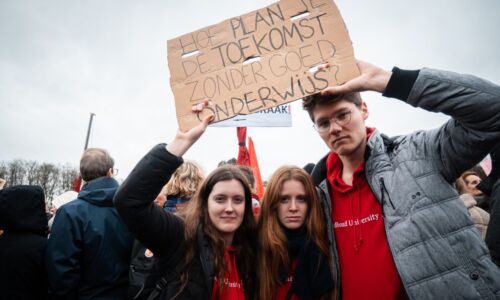-
 Supplies from Bergschenhoek are divided in a (partially collapsed) room in Croatia. Photo: private collection
Supplies from Bergschenhoek are divided in a (partially collapsed) room in Croatia. Photo: private collection
When 24-year-old student Tamara Šalov heard about the devastating earthquake in Croatia, she immediately knew she wanted to help. She cannot go there herself, because of the corona measures, so she organises a fundraising campaign from Nijmegen.
‘Clothes, sheets, underwear, towels, medication, sails, flashlights, canned food, laundry detergent, sanitary napkins’, Tamara Šalov sums up. The 24-year-old Human Geography master student helps with a fundraising campaign her cousin started, to send as many items as possible to the earthquake area in Croatia. She pauses. ‘Sanitary napkins might not be the first thing you think about after a disaster, but they are definitely needed too.’

Next weekend, a full truck of supplies will drive from Bergschenhoek (near Rotterdam) to the affected country, says Šalov. ‘My cousin is working on a big fundraising campaign, together with others in Bergschenhoek. When I heard about the disaster, I wanted to help. My goal is to bring her as many supplies from Nijmegen as possible this Friday. After that, she will make sure everything arrives in Croatia.’
Homeless
The extra help is welcome for the Eastern European country. As if 2020 wasn’t disastrous enough, Croatia was hit by a devastating earthquake on the 29th of December. The earthquake, with a strength of 6.4 on the Richter scale, killed at least 7 people and hundreds got hurt. Complete houses collapsed, hundreds of people were suddenly homeless. Exact numbers are still to be published.
‘My parents’ friends have lived out of their car for days’
Šalov, who has Croation roots and has family and friends in the country, was affected by this. ‘Even today, there are heavy aftershocks. Many people are afraid. I don’t know anyone who got hurt, but my parents’ friends have lived out of their car for days, their house wasn’t safe anymore. That is awful to hear.’
Corona crisis
The aftershocks aren’t the only danger, the corona crisis is another factor. ‘I am really worried about the infection rate there. People are housed in emergency locations, sometimes with hundreds of people in the same place. During food distributions, there are long lines of people, close to each other. Everything goes from hand to hand and not everybody wears a face mask.’

Šalov placed a call for supplies on social media. Succesfully: several people have brought her items. ‘I think it’s heartwarming to see how many people took action. Croatian people are very close. The feeling of collectivity is strong. Not only in Croatia, but also here in the Netherlands: I hear from many people with a Croatian background that they help one way or the other. I also received messages from people I don’t know at all. That does me good.’
Campaign
Šalov’s fundraising campaign is organised through Instagram, where you can find her at @tamarasalov. The campaign lasts until Thursday night, the student will take the supplies to Bergschenhoek on Friday.



